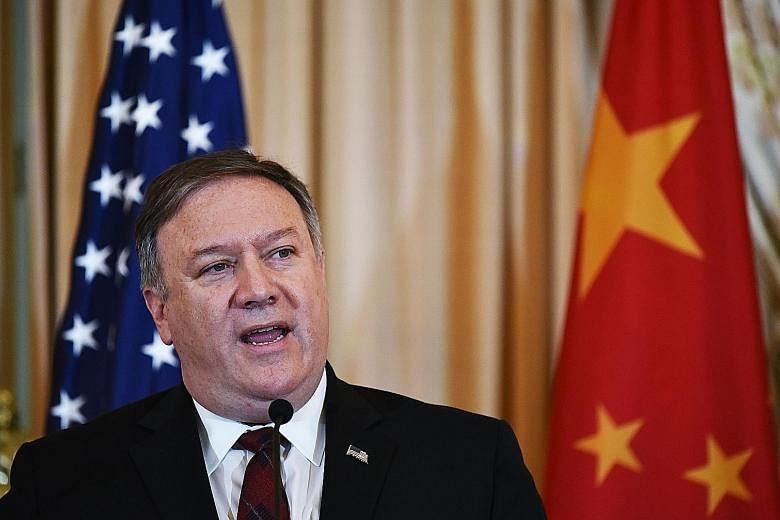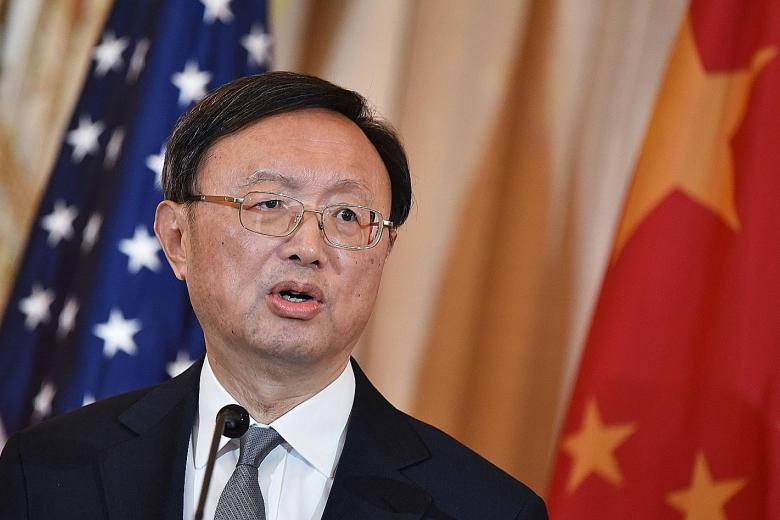A high-level meeting between the United States and China postponed amid rising tensions over Taiwan and the South China Sea finally took place last Friday.
But at a press conference after the meeting, differences over these issues were on full display even as both sides tried to steer the bilateral relationship away from the frictions that have plagued it recently.
Secretary of State Michael Pompeo said the US is not pursuing a Cold War or containment policy with China. "Rather, we want to ensure that China acts responsibly and fairly, in support of security and prosperity in each of our two countries," he said at a press conference with Secretary of Defence James Mattis after talks with top Chinese diplomat Yang Jiechi and Defence Minister Wei Fenghe.
China similarly downplayed competition between the two powers, with Mr Yang saying: "Everything that we do is to deliver better lives for the Chinese people, to realise the rejuvenation of the Chinese nation. It is not intended to challenge or displace anyone."
The remarks come amid a growing mood in Washington that China's unfair trade practices and coercion against its neighbours had to be stopped, and suspicions in Beijing that the US wants to curtail its rise.
The diplomatic and security dialogue came a week after President Donald Trump and his counterpart Xi Jinping spoke by telephone about resolving their trade disputes.
Last Friday, the US pressed China to halt its militarisation in the South China Sea, but China said the US should stop sending its vessels and aircraft close to Chinese islands and reefs.
Beijing has been unhappy with America's reconnaissance and B-52 bomber flights over the South China Sea, and its sailing of two warships through the Taiwan Strait last month. A Chinese destroyer and US warship nearly collided in the disputed waters in September.
Mr Mattis defended the patrols, saying: "The United States adheres strictly to international law and the international maritime rules of the road, and we continue to operate anywhere in international waters, international air space, as all nations are entitled to."
The US was "concerned about China's increasing efforts to coerce others, constraining Taiwan's international space", said Mr Pompeo, while stressing that its "one China" policy had not changed.
He said the US was also concerned about China's repression of religious groups, referring to reports that China was holding 800,000 Uighur Muslims in Xinjiang and other religious minorities in re-education camps.
Responding in his opening remarks, Mr Yang stressed that Taiwan was an inalienable part of China. He added that Chinese citizens had the freedom to believe or not believe in religion.
Both sides stressed, however, that cooperation remained essential on the many central issues both countries face, such as the denuclearisation of the Korean peninsula.
Mr Yang said: "We hope that our two sides will work in concert and come together, focus on cooperation, manage differences, and advance China-US relations along the right track."


